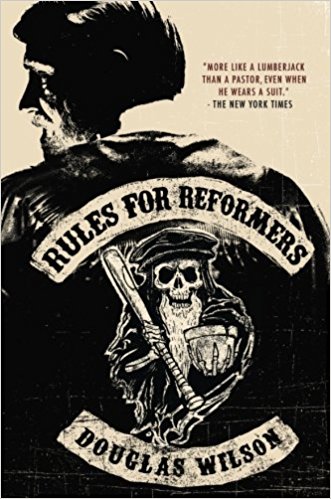I wrote an article last week for Desiring God on Robert Lewis Dabney: Providence is No Excuse.
The responses on Facebook reminded me why I’m not on Facebook. They did alert me, though, to some ways that I think I’m being misread, so in the interests of clarity, here goes…
“What an absolute butcher job on Dabney, nothing short of slander.”
I tried to let Dabney speak for himself. There was so much that I couldn’t include because of space constrictions, and I had to boil it down to the essential points. I wish every white Reformed American Christian would read Dabney’s “Ecclesiastical Equality of the Negro” for themselves, as well as the other passages I quoted. Rather than butchering or slandering, you’ll see that this was just an appetizer. You can find them for free online:
Ecclesiastical Equality
Civil Magistrate
Universal Education
“liberal discourse plucked from some guys doctoral thesis!”
I wish! Sean Michael Lucas already wrote the doctoral thesis (here). This was just the fruit of a couple of days reading Dabney carefully for myself and responding.
“The article doesn’t say much, since most Reformed people would probably already agree that Dabney is a racist”
Interesting, because a more frequent comment was:
“I never heard of Dabney”
I asked several guys in my seminary classes “have you heard of Dabney?” None of them had. Nobody knew anything about him. I agree that some people have acknowledged that Dabney was a racist, but the point of the article was more than just that. It’s not just that Dabney was reformed and that he also happened to be racist, but that his reformed theology and his racism were deeply intertwined. I haven’t seen that addressed anywhere publicly (though I did find it referenced in a few scholarly journals: check out Lucas, “Southern Fried Kuyper” if you can find it).
“For those who may fall for the clickbait: This article is “exposing” someone from the 1800’s. Someone whose backwards and sinful ideas on slavery are well known and unhidden for anyone who is interested to look.”
“it is about a guy that died 120 years ago. And a guy I have never heard of”
“some liberal intellectual telling me about something that happened 150 years ago”
I anticipated this “so what?” response, which is why I gestured toward the echoes of Dabney in our halls today. Talking about Dabney is important because he is still influential today, including his views on race. Doug Wilson’s book on slavery relies heavily on Dabney. Dabney is quoted in Piper’s books, and recommended on Desiring God without caveat (until now). There are certainly more prominent examples of the entanglement of of racism and reformed theology (Abraham Kuyper) and less prominent (Benjamin Palmer) but Dabney was fresh because I had just seen him footnoted that very week. If white Reformed folks are going to continue to quote him in our books then we also need to be responsible to tell the whole story. I’m grateful to the folks at Desiring God for the having enough humility to publish the piece.
“sowing division and white guilt”
“falsely accusing all white Reformed people of harboring feelings of white supremacy”
“class guilt to white people for the sins of other white folk from previous centuries.”
If you read carefully, that’s not what I wrote at all. But, you know what they say about the dog that yelps…
Some random epithets:
“race baiting”
“identity politics”
“political correctness”
“virtue signalling” [or it’s adjective form] “virtue signally”
“social justice dung,” “social gospel drivel,” “new evangelical social justice warriors”
It’s amazing to me how some people can spot a “social justice warrior” from a mile away, and denounce “virtue signaling” with passion and zeal, but never once speak up about the actual injustices going on in the world. “You strain out a gnat, but swallow a camel.” The political epithets (I was waiting for the “marxist” label to come out) are mostly amusing to me, except that I hear thoughtful people, who I think should know better, using them as well. It’s a way of avoiding real engagement.
I do wonder though, what these people make of Moses, David, Isaiah, Amos, James, and especially Jesus. Were they “virtue signalling” when they denounced injustice? Whatever you want to call it, sign me up with them.
“Are you saying don’t read Dabney because he was a sinner? Abraham, Moses, David were sinners. Martin Luther was a sinner.”
One key difference between Abraham, Moses, and David is that they repented of their sin, and the Bible flat out repudiates it for us to learn from. Dabney never repented of his racism, he held it bitterly to the end, and his example has not been clearly repudiated. Hence the article.
“Should we ban his books? nullify his ministry?”
“Toss him out of the bookstores, never quote him again unless you throw a disclaimer in the beginning to make sure to poison that well nice and good.”
The reactivity here is instructive, because again, I didn’t say that. I used the line “his books are still repackaged, republished, and sold” as supporting evidence of my claim that “his influence is still among us.” I didn’t say that I don’t think Dabney should ever be quoted and his books should never be read. That might be true, but that wasn’t what I claimed in this piece. I thought I was clear about what I thought should be done: acknowledge, lament, and repudiate Dabney’s doctrinal distortions. To my knowledge that hadn’t been done by my camp, at least not in any noticeable way. If someone could show me where that has been done, I’d love to see evidence to the contrary. I searched Desiring God, The Gospel Coalition, and a few other sites and couldn’t find anything. The fact that many readers couldn’t even bring themselves to do these basic things is disheartening, because to me it seems obvious.
“But what about King’s failures?”
I agree that King had theological and moral failures. However, loud critiques of King from those who haven’t yet faced up to the failures of their own tribe sound hollow and hypocritical. I hope to dive deep into King eventually (maybe soon), and I hope to understand him and his context thoroughly (not just quotes from early seminary papers); but before I get to a critique of King, it seems obvious that there’s still a lot of work to be done in my own neck of the woods.
Life Reconsidered - Judy Wu Dominick











